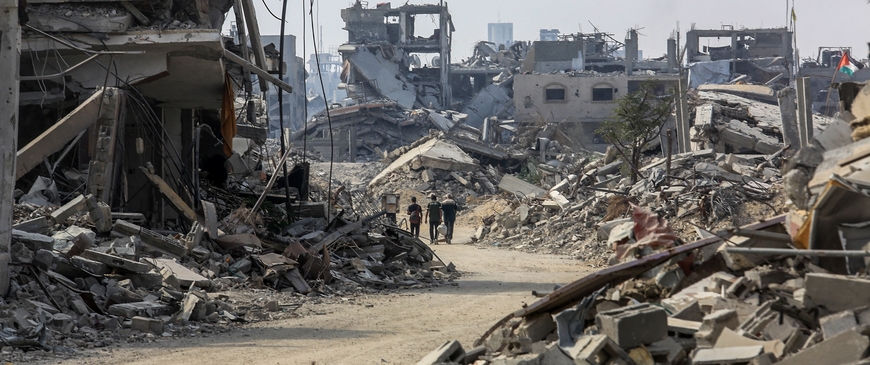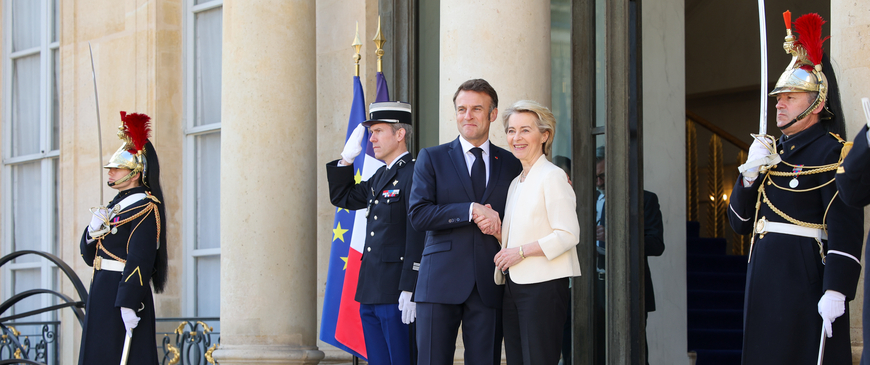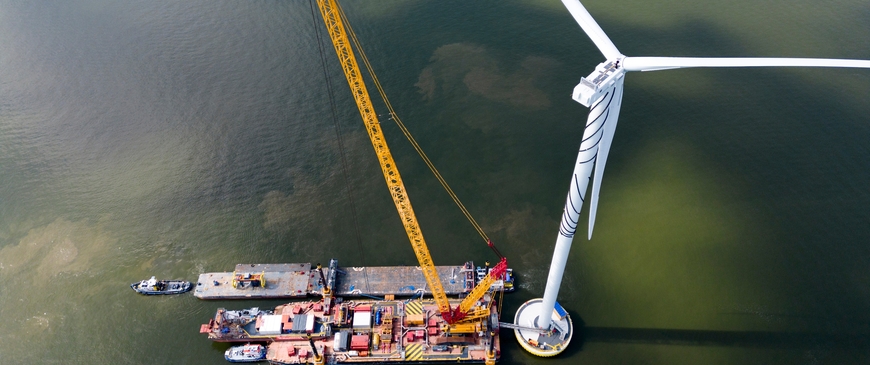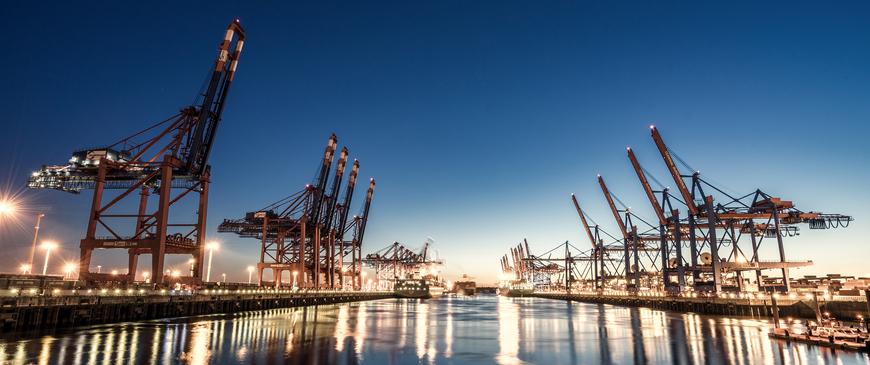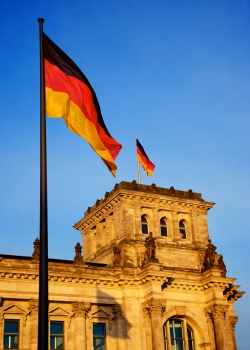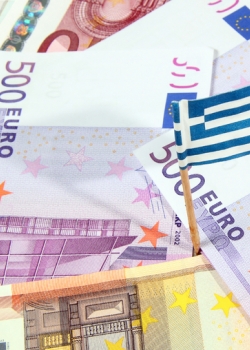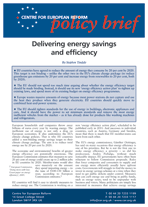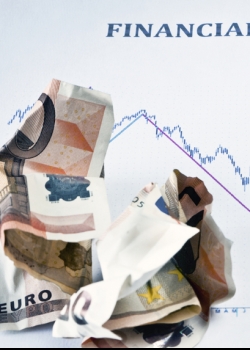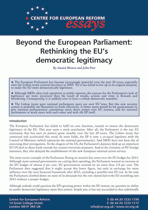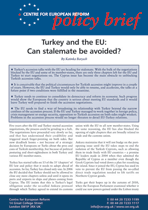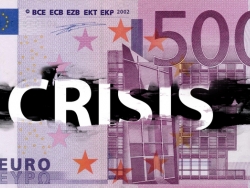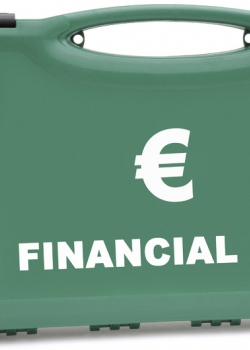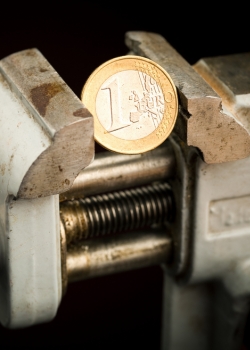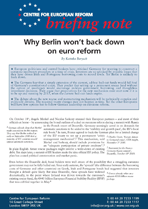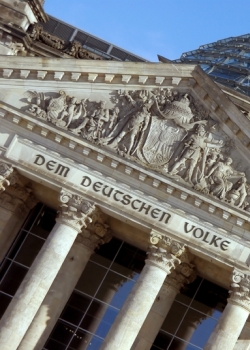Research
Is Germany really rebalancing?
01 February 2011
Germany has rightly been criticised for its dependence on exports and its huge trade surpluses. In normal times, when economies are growing healthily, trade imbalances pose less of a problem.
Issue 76 - 2011
28 January 2011
- European political parties are the key to EU legitimacy, Sir Julian Priestley
- A new opportunity for EU foreign policy, Charles Grant, Katinka Barysch, Tomas Valasek
- Is Germany really rebalancing?, Simon Tilford
Ireland’s election and the EU: From poster child to enfant terrible?
28 January 2011
Ireland will elect a new government on February 25th to replace a discredited administration loathed by most Irish voters. At first sight, it seems unlikely the election will re-open the fundamentals of a bail-out agreed with fellow eurozone members and the IMF last November.
Can Greece be saved?
20 January 2011
Will Greece have to restructure its debt? Among most West European economists and investors, this now seems to be a foregone conclusion.
Delivering energy savings and efficiency
19 January 2011
The EU should not waste its time arguing about whether to make its energy efficiency targets binding. Instead, it should focus on practical steps to improve energy efficiency. In this new CER policy brief Stephen Tindale calls for a strengthening of the EU's so-called 'combined heat and power directive' to...
Euro crisis: In defence of investors
17 January 2011
The eurozone’s fiscal position is better than the US and UK, and the crisis-hit members of the currency union are doing more to strengthen their public finances than either of these countries.
Reflections on Tommaso Padoa-Schioppa and the euro
13 January 2011
At the end of last year, Europe lost Tommaso Padoa-Schioppa, an eminent central banker and economist, and one of the founding fathers of the euro.
Beyond the European Parliament: Rethinking the EU's democratic legitimacy
21 December 2010
The European Parliament plays a crucial role in the EU's legislative process, but is little loved in many parts of the EU. Even if all MEPs became wise, hard-working and responsible, the Parliament would still find it hard to claim a proper democratic mandate.
Has Ukraine lost appetite for reforms?
17 December 2010
In a study on Ukraine published in October, the CER gave President Viktor Yanukovich credit for passing difficult economic reforms but criticised his efforts to suppress political opposition. Since then, reforms have stalled while the concentration of power in the president's hands has continued unabated.
Turkey and the EU: Can stalemate be avoided?
16 December 2010
Turkey's accession to the EU is heading for an impasse. The bulk of the membership talks are blocked. Unless there is progress over Cyprus or Nicolas Sarkozy starts welcoming Turkish membership – both unlikely prospects – the EU and Turkey will soon run out of policy chapters to negotiate.
Eurozone: Time for damage limitation
09 December 2010
Time is running out to prevent the eurozone crisis from imperilling Europe's banking system and with it the integrity of the currency union. It is beholden on policy-makers to minimise the economic (and hence political costs) to the EU.
The eurozone enters a critical phase
01 December 2010
On November 21st Ireland accepted financial support totalling around €90 billion from the EU and the International Monetary Fund (IMF). There was an awful inevitability about this outcome.
The next five years of the euro crisis: Five key questions
01 December 2010
Will the euro break up?
The euro crisis is rooted in structural imbalances that even on an optimistic scenario will endure for years. Germany has a current account surplus and weak domestic demand, while Greece, Ireland, Italy, Portugal and Spain - after years of profligacy - suffer from current account deficits...
The euro crisis is rooted in structural imbalances that even on an optimistic scenario will endure for years. Germany has a current account surplus and weak domestic demand, while Greece, Ireland, Italy, Portugal and Spain - after years of profligacy - suffer from current account deficits...
Britain cannot afford to neglect EU defence efforts
01 December 2010
Britain is showing an unprecedented interest in closer defence co-operation with its European partners. The coalition government in London should be commended for initiating bilateral deals and projects amongst a limited number of EU countries.
The 'new' Poland and its neighbours
29 November 2010
Poland is shedding its 'new member-state' image and is instead trying to join the exclusive club of big EU countries. It is a laudable and so far largely successful goal, but not one without risks.
Issue 75 - 2010
26 November 2010
- The eurozone enters a critical phase, Simon Tilford
- The next five years of the euro crisis: Five key questions, Charles Grant
- Britain cannot afford to neglect EU defence efforts, Clara Marina O'Donnell
Why Berlin won't back down on euro reform
19 November 2010
The German plan for a eurozone insolvency procedure has spooked the markets and drawn political fire.
Eurozone policy-makers are playing with fire
15 November 2010
There is an awful inevitability about the latest instalment of the eurozone crisis, which looks highly likely to culminate in Ireland being forced to seek a bailout from the European Financial Stability Fund (EFSF).
Europe dances to Germany's tune
03 November 2010
For much of this year, the response of European leaders to the eurozone crisis has been hesitant and fractious. But when the European Council met in Brussels on October 28th and 29th, the EU appeared to be acting with greater purpose and sense of direction.
Britain's defence review: Good news for European defence?
28 October 2010
On October 19th, the UK's coalition government published its 'strategic defence and security review' (SDSR), laying out the future shape of Britain's armed forces. As was to be expected at a time of budget austerity, the SDSR foresees significant cuts in military capabilities.


